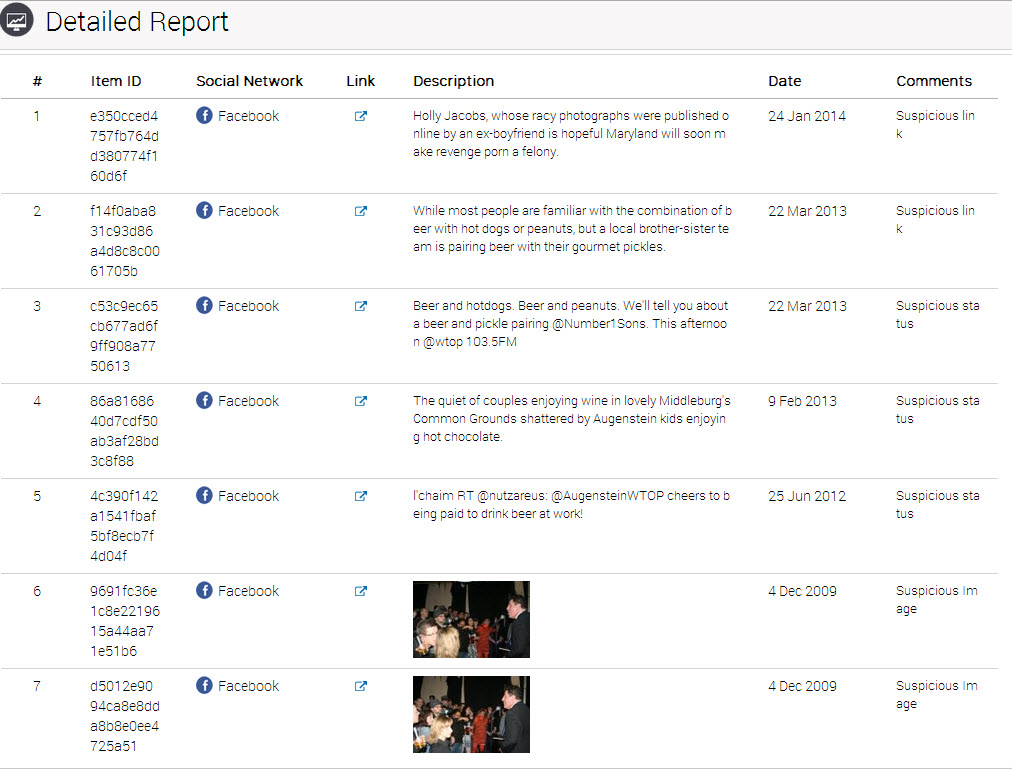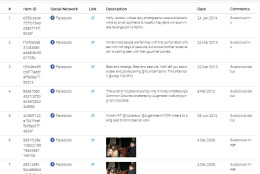



WASHINGTON — Out of sight, out of mind works in some cases, but that may not be sufficient to keep you from being disqualified for a new job.
Companies searching for new hires scour potential employees’ social media accounts as part of the interview process.
“Ninety percent or more of recruiters or employers are looking at candidates’ social networks,” says Lior Tal, co-founder of RepNup, whose software scans a user’s Facebook account and points out posts that could harm a job applicant’s chances.
RepNup allows a user to delete a post or change security settings which control who can see it.
RepNup now supports text and photos through a person’s Facebook account, but future versions will include Twitter, Instagram, and video scanning.
The software algorithm looks at content “you posted, or shared, or liked or were tagged in,” says Tal, who previously co-founded PGguard.com, an online service that safeguards children and teens on social networks.
According to Tal, with hundreds or thousands of postings, manually searching through Facebook is often too time-consuming.
After authorizing a search online, the software takes a few hours, then alerts the user that the report of potential gaffes is available.
“Things that might harm your reputation,” is how Tal describes what the software looks for. “Things that could be related to sex, or alcohol, or violence or inappropriate language.”
Ooops. Now what?
Once the report is compiled, the user can decide what to do with the potentially embarrassing posts.
“In this report you can see all the items that were found, and you can click on any one item, and get into the exact place on your social network,” says Tal.
Each inappropriate post is listed separately and includes a link so the user can quickly delete or edit content they wouldn’t want a would-be employer to see.
“You can either remove it, or change the settings, so your reputation becomes cleaner,” says Tal.
The software’s findings aren’t judgmental.
“We’re not determining what you should or shouldn’t do. We basically are giving you some recommendations, some things according to research or employers we find things that could potentially harm your reputation.”
Tal says the final decision on how to handle the flagged posts is up to the user.
He says it’s important to realize that what is posted online often is difficult or impossible to remove.
“It’s amazing to see what some people post on social networks, and they think it’s private.”
What my report found
As a journalist, husband, and father, I’ve always tried to keep my Facebook clean, so I didn’t expect to find any major gaffes.
Here’s what RepNup determined, in a scan that from Dec. 31, 2011 to the present.
The scan analyzed a total of 4,759 items — 4.204 text and 555 images.
RepNup determined I had five suspicious posts and two suspicious images.
That got my attention.
In an easy-to-read report, here were the most interesting flagged posts:
“Holly Jacobs, whose racy photographs were published online by an ex-boyfriend is hopeful Maryland will soon make revenge porn a felony.”
I can see why that might raise some concerns, but since it was the posting of a story I’d done for WTOP I knew the content wouldn’t hurt my reputation.
The next questionable post:
“While most people are familiar with the combination of a beer with hot dogs or peanuts, but a local brother-sister team is pairing beer with their gourmet pickles.”
I suppose the potentially suspicious trigger word was “beer,” rather than “brother-sister” or “pickle.”
Despite my grammatical error in the post, I ignored the warning and left the posting alone.
Both questionable images are from 2009, when I was singing with a band, while someone in the foreground was holding a big glass of beer.
So, while I didn’t take any action with the data provided by RepNup, it’s nice to have a more objective view of the suitability of my years with Facebook.







